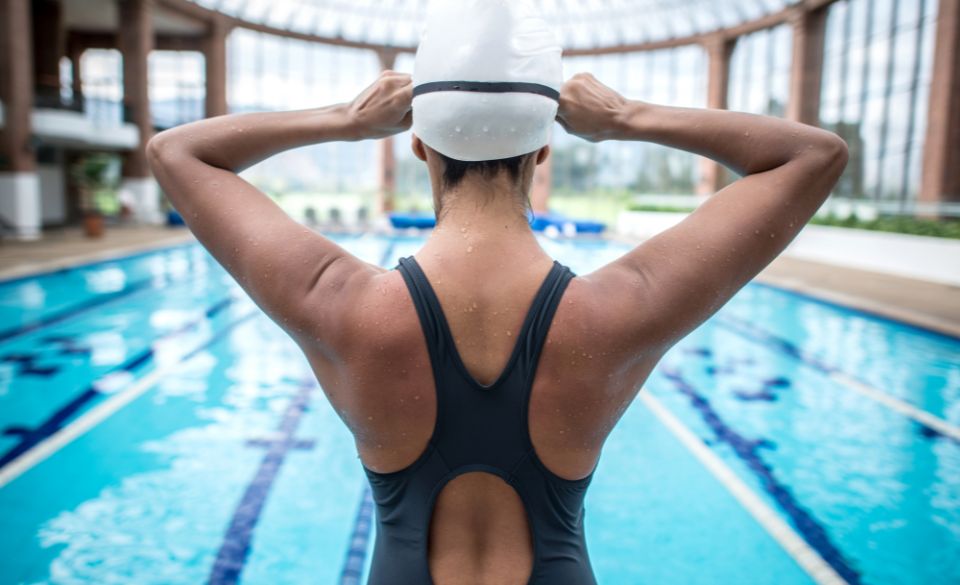
Unleash Your Swimming Potential with Running Workouts
Page Contents
As a swimmer, you already know the importance of strength, endurance, and technique in the pool. But did you know that incorporating running workouts into your training routine can take your swimming performance to new heights? Running workouts offer a unique set of benefits that complement your swimming training, improving your cardiovascular fitness, muscular endurance, and overall athleticism. In this blog post, we’ll explore the best running workouts for swimmers and discover how they can help you become an even stronger, faster, and more efficient swimmer.
Why Should You Do Running Workouts as a Swimmer?
You might wonder why running, a land-based activity, is beneficial for swimmers. The truth is that running workouts offer numerous advantages that directly translate into improved swimming performance. First and foremost, running is a highly effective cardiovascular exercise that elevates your heart rate, enhances lung capacity, and improves oxygen utilization. By engaging in running workouts, you can boost your overall endurance, enabling you to sustain longer and more intense swimming sessions without feeling fatigued.
Furthermore, running strengthens your leg muscles, which play a crucial role in swimming propulsion. The repetitive impact and resistance of running help build muscular endurance, power, and stability in your lower body. These attributes directly contribute to stronger kicks, more efficient turns, and better starts in the pool. Additionally, running workouts improve your body’s ability to efficiently transport oxygen and nutrients to your muscles, enhancing your overall athletic performance both in and out of the water.
When it comes to swimming for adults with a disability, running workouts can also provide significant benefits. Adaptive running exercises tailored to individual abilities can improve cardiovascular health, muscular strength, and overall endurance. These improvements can enhance the swimming performance of adults with disabilities by increasing their stamina and strength, allowing them to swim longer distances and perform more vigorous swimming routines.
Incorporating running into the training regimen of adults with disabilities can also have positive psychological effects. The sense of achievement from completing running workouts can boost confidence and motivation, which are essential for consistent and effective swimming practice. Additionally, the social aspect of group running sessions can foster a sense of community and support, further enhancing the overall well-being of swimmers with disabilities.
How Running Workouts Can Improve Swimming Performance
Running workouts offer a range of benefits that directly enhance your swimming performance. Let’s take a closer look at some of the key ways running can positively impact your swimming abilities:
1. Enhanced Endurance: Running workouts improve your aerobic capacity, allowing you to swim for longer durations without experiencing fatigue. This increased endurance translates to improved performance in distance swimming events and the ability to maintain a strong pace throughout your swim sessions.
2. Stronger Legs: Running strengthens the muscles in your legs, including the quadriceps, hamstrings, calves, and glutes. These muscles are essential for generating power in your kicks and providing stability during your swim strokes. Stronger legs lead to more powerful and efficient swimming movements.
3. Increased Lung Capacity: Running workouts improve your lung capacity and respiratory efficiency, allowing you to take in more oxygen during swimming. This increased oxygen intake helps delay the onset of fatigue and improves your overall swimming endurance.
4. Mental Toughness: Running workouts challenge you both physically and mentally, helping you develop mental toughness and resilience. This mental strength translates into the ability to push through difficult swim sets, maintain focus during races, and overcome obstacles that arise during training or competitions.
5. Weight Management: Running is an effective calorie-burning exercise that can aid in weight management for swimmers. Maintaining a healthy weight and body composition is important for swimming performance, as excess body fat can create additional drag in the water.
Numerous studies have also highlighted the positive impact of running on swimming performance. For example, a study published in the Journal of Sports Medicine and Physical Fitness found that swimmers who incorporated running into their training regimen experienced significant improvements in aerobic capacity and swimming performance compared to those who solely swam.
How Often Should You Run as a Swimmer?
The frequency of your running workouts as a swimmer depends on various factors, including your training goals, swimming schedule, and overall fitness level. It’s important to strike a balance between running and swimming to avoid overtraining and reduce the risk of injury. Generally, two to three running sessions per week can provide significant benefits for swimmers.
When incorporating running workouts, consider scheduling them on days when you have lighter swimming sessions or during your recovery days. This allows your body to adapt to the additional stress of running without compromising your swim training. As you progress and become more comfortable, you can increase the intensity and duration of your running workouts.
Remember to listen to your body and adjust your running routine accordingly. If you experience excessive muscle soreness or fatigue, it’s essential to give yourself adequate rest and recovery time. Prioritize quality over quantity, and always maintain a balanced training approach that incorporates both swimming and running.
10 Best Running Workouts for Swimmers
1. Long-Distance Runs: These steady-paced runs build endurance and mimic the sustained effort required in longer swimming events. Start with a comfortable distance and gradually increase over time.
2. Interval Training: Alternating between periods of high-intensity running and recovery, interval training helps improve your aerobic capacity and speed. For example, sprint for 1 minute and then jog or walk for 2 minutes. Repeat for a set number of intervals.
3. Hill Repeats: Running uphill challenges your leg muscles, builds strength, and enhances power. Find a steep hill and sprint up at maximum effort, then recover by walking or jogging back down. Repeat for a designated number of repetitions.
4. Fartlek Runs: Fartlek, meaning “speed play” in Swedish, involves varying your pace throughout your run. Incorporate bursts of faster running during specific intervals or landmarks, followed by periods of slower recovery jogging.
5. Tempo Runs: Tempo runs involve maintaining a comfortably hard pace for an extended period. This workout improves your lactate threshold, allowing you to sustain higher intensities for longer durations.
6. Sprint Intervals: Short, intense sprints simulate the explosive power needed during swim starts and turns. Sprint at maximum effort for a short distance (e.g., 50 meters) and then recover by walking or jogging. Repeat for multiple sets.
7. Cross-Training Runs: Incorporate other forms of cross-training into your runs, such as incorporating bodyweight exercises like lunges, squats, or skipping, to target different muscle groups and improve overall athleticism.
8. Recovery Runs: These slow-paced, low-intensity runs promote active recovery and aid in muscle repair. Use these runs as light workouts on days following intense swim training sessions.
9. Pyramid Intervals: Gradually increase and decrease the intensity or duration of your running intervals. For example, start with a moderate-paced run, then increase the intensity until you reach a maximum effort, and then gradually decrease it again.
10. Trail Runs: Take your running off the pavement and explore nature trails or off-road routes. Trail running challenges your balance, coordination, and strength, providing a dynamic workout that complements your swimming training.
Final Words: Dive into the Benefits of Running Workouts for Swimmers
Running workouts offer an array of advantages for swimmers seeking to improve their performance in the water. By incorporating running into your training routine, you can enhance your endurance, strengthen your legs, increase lung capacity, develop mental toughness, and manage weight effectively. Remember to integrate running gradually, listen to your body, and find a balance that complements your swim training.
Embrace the variety of running workouts available and explore the different training options, such as long-distance runs, interval training, hill repeats, and fartlek runs. By consistently incorporating these workouts into your routine, you’ll witness noticeable improvements in your swimming performance and unlock your full potential in the pool.




